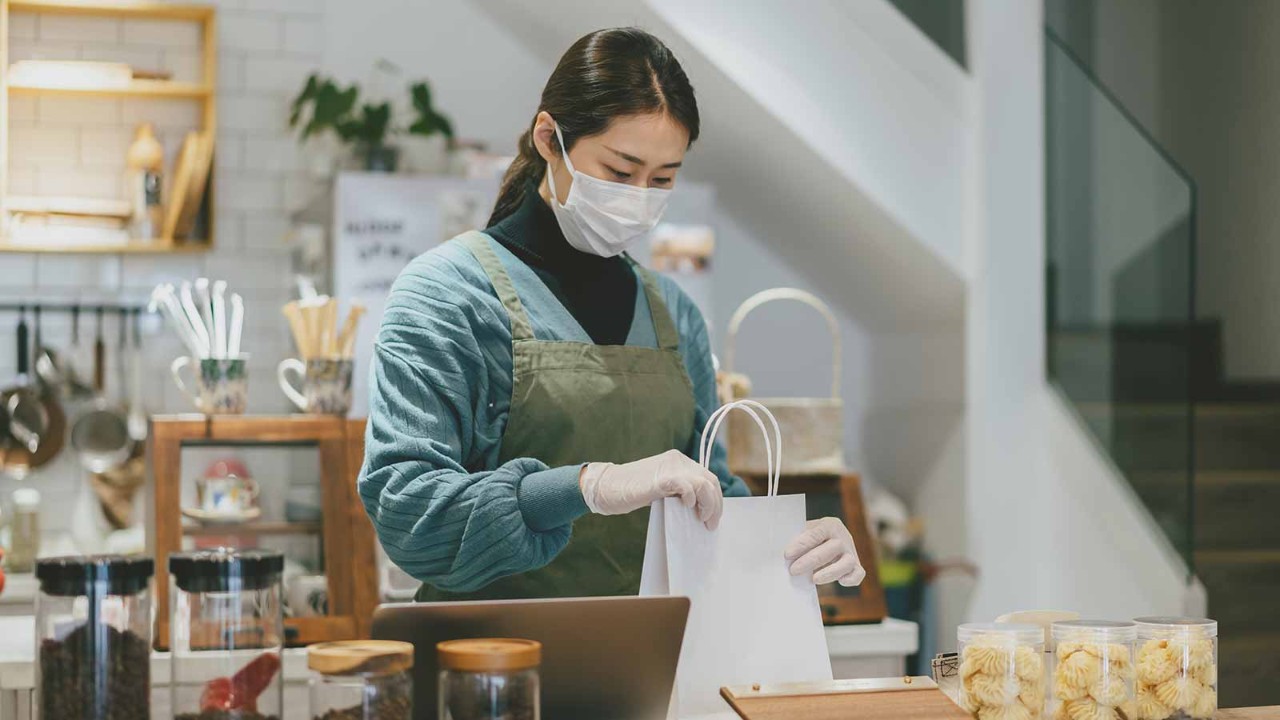
A year into the Covid-19 pandemic, small and medium-sized practices (SMPs) in Asia report that the situation has taken its toll on staff and led to falls in income. But many SMPs are adapting well to the changed business environment.
Dr Angus Ho, tax partner at ShineWing in Hong Kong, says the firm’s tax practice has been impacted by the extension of tax deadlines and longer turnaround times with Hong Kong’s Inland Revenue Department.
‘This has severely affected our business and the collection of fees from our clients,’ he notes.
The pandemic has been a great teacher; it has taught me surrendering, acceptance and openness
Delays or suspensions have also affected IPO income; in addition, travel restrictions mean that the practice has had to outsource work and share fees with its overseas offices.
Thomas Lee FCCA, partner at Lee, Au & Co in Hong Kong, has seen a similar impact. ‘Our clients’ businesses are affected to various degrees and we have seen a reduction in fee levels and also mildly shrinking client numbers,’ he says.
Adapt to uncertainty
Lily Yong, managing director of Kuala Lumpur-based InTune Outsourcing, says she realised early on that her experience may not be enough to get the firm through the uncertainties of the pandemic.
‘From then on, my attitude was that of complete openness and saying yes to whatever came by, be it Zoom, Facebook Live, meeting new business associates, and accepting interstate and overseas jobs,’ she says.
The firm increased its presence on social media, offering Facebook Live talks and webinars on topics ranging from government stimulus packages for SMEs to financial management, which generated enquiries from new clients.
Flexible approach
For many firms, working from home and flexible working arrangements are now likely to become permanent.
Lee says that although his firm found that working from home was not popular with staff, it will continue to offer flexible options to enable staff to avoid peak-time commuting.
Other practices have also evolved, with virtual meetings now kept to a minimum to help staff avoid ‘Zoom fatigue’ and telephone calls used instead.
Meanwhile, in Singapore, Rick Chan ACCA, managing partner and head of audit and assurance at Mazars, says the pandemic has made the firm rethink how office space is used. It plans to continue with its current system – with staff spending half the week working from home and the other half hot-desking in the office – once the pandemic is over.
Mazars has also set up an offshore office in Malaysia to handle routine work, in order to reduce costs and lessen the burden on its Singapore staff.
Client support
Many SMPs have taken the opportunity to launch new services. Mazars in Singapore, for example, is offering a digital transformation service, and has opened an insolvency and restructuring practice.
ShineWing in Hong Kong, meanwhile, is offering diversity training for executive directors and professional examination training for accountancy students. It has also created a Greater Bay Area desk to position the firm to win new business in the region.
InTune Outsourcing in Malaysia is focusing on companies’ needs, preparing financial projections and scenario analysis, assisting applications for subsidies, grants and loans, and advising on cost management.
Meanwhile, Hong Kong-based Lee, Au & Co has begun offering a UK tax service after noticing a rise in UK inbound investments.
Emphasis on wellbeing
Many SMPs have also placed a greater emphasis on wellbeing during the past year.
Mazars has responded by focusing on staff wellbeing and increasing automation to relieve some of the pressure. ‘Our staff have been working like crazy and are really worn out,’ says Chan.
Both ShineWing and Lee, Au & Co have adopted flexible office dress codes, with the former also offering greater flexibility in terms of annual leave and working hours.
InTune has been through a similar journey. ‘Initially, our top priority was to ensure our clients got through this difficult period,’ Yong says, adding that once it was clear that people were burning out, management started checking in regularly with staff, sharing challenges and recognising everyone’s hard work.
Looking back over the past year, Yong says: ‘The pandemic has been a great teacher; it has taught me surrendering, acceptance and openness. I have acquired new skills, opened new business channels and met many more people in a short period of time.’
Building a virtual team
One of the challenges of the pandemic has been helping staff to continue to feel cared for and part of a team while they are working remotely.
Rick Chan ACCA, managing partner and head of audit and assurance at Mazars in Singapore, says the situation has been particularly hard for new joiners, so the company is encouraging digital mentoring and regular virtual team meetings.
To help build team spirit, Mazars has also organised social events on Zoom, such as team cooking sessions and a lucky draw at Chinese New Year, replacing the usual dinner.
‘The pandemic has pushed us to be a bit more creative,’ Chan says.
In Malaysia, InTune Outsourcing took a similar approach, delivering food to staff’s homes for Hari Raya and sharing a meal together through Zoom.





